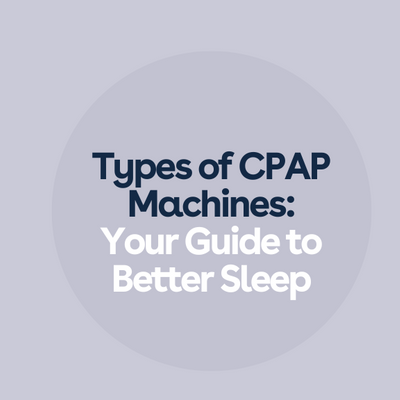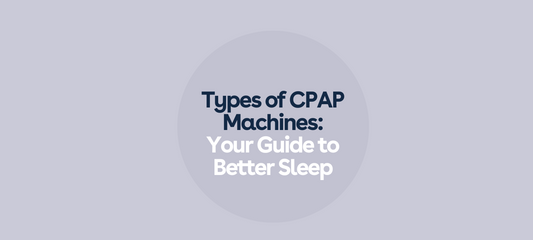Sleep apnea lies at the heart of so many chronic conditions. Stroke, diabetes, obesity, hypertension — they all increase the risk and severity of OSA.
Sleep apnea and heart failure share the same inextricable link. While OSA does not directly cause heart failure, it can significantly increase your risk of dangerous, potentially life-threatening cardiovascular diseases.
Let’s consider a study published in 2021. According to the study findings, patients with moderate or severe OSA were 71% more likely to experience a cardiovascular event if they left their sleep condition untreated. The list of cardiovascular events that were more likely to occur in patients with untreated OSA included stroke, unstable angina, stroke, heart attack, heart failure, and cardiovascular death.
In short, not treating sleep apnea puts you at significant risk for developing or worsening dangerous heart conditions; and the worse the sleep apnea, the higher the risk.
How Does Sleep Apnea Affect the Heart?
Untreated sleep apnea is associated with an increased likelihood of developing multiple heart problems:
- hypertension (arterial or pulmonary): high blood pressure in the heart or lungs
- coronary artery disease: hardening of the arteries
- cardiac arrhythmia: irregular heart beat
- atrial fibrillation (AFib): type of cardiac arrhythmia that indicates an irregular, often rapid heart beat
- bradycardia: slow heart rate, generally less than 60 beats per minute (BPM)
- unstable angina: unexpected chest pain due to insufficient blood flow and oxygen to the heart
- acute myocardial infarction (heart attack): blockage of blood flow to the heart
- congestive heart failure (heart failure): decreased pumping power of the heart
- sudden cardiac death: sudden, unexpected death caused by loss of heart function
And the level of risk varies by condition. For example, sleep apnea raises the risk of heart failure by 140%, while it raises the risk of coronary artery disease by 30%. People with severe OSA that goes untreated are twice as likely to have a heart attack, and they are four times more likely to have AFib.
Sleep apnea and heart disease are also linked to a multitude of chronic, harmful health outcomes. For one, OSA increases the chances of a stroke. It also contributes to hypertension, which is a risk factor for heart disease and other serious health problems.
Obesity, one of the most prominent risk factors of sleep apnea, increases the likelihood of developing diabetes and high blood pressure — which also put you at greater risk for heart disease. Put simply, untreated OSA worsens chronic health conditions that negatively impact your heart.
What Happens to Heart Rate During Sleep Apnea Events?
When you sleep, you enter a more relaxed state because your body has fewer metabolic needs. During this relaxed state, your heart rate, breathing rate, and blood pressure typically drop.
When you have sleep apnea, however, you experience a cycle — at least five times per hour — of paused or slowed breathing. This pause in breathing is called the ‘apnea,’ and it typically lasts for 10 or more seconds.
At the onset of each apnea, the oxygen level in your blood decreases, and your heart rate drops. Your brain sounds the alarm by sending signals to your nervous system to boost oxygen levels to your heart and brain.
As a result, your blood vessels narrow, and your heart rate speeds up significantly — typically more than 100 BPM. You might even gasp, snort, or choke for air to restart your breath, which is why choking or gasping at night is a strong indicator of OSA.
Can Sleep Apnea Cause Heart Problems?
The cycle of apnea, where you stop and start breathing multiple times per hour of sleep, reduces your blood oxygen levels. Consequently, your body activates its “fight or flight” response in order to boost your blood pressure and heart rate. Over time, this stress response can lead to heart disease, stroke, and hypertension.
To grasp the long-term effects of sleep apnea on the heart, first consider this: mild sleep apnea is categorized as 5-14 pauses in breathing (apneas) per hour of sleep, moderate OSA is categorized as 15-29 apneas per hour, and severe OSA is categorized as 30 or more apneas per hour. Per hour. Over the course of one eight-hour sleep session, you could experience between 40 and 240-plus times when you completely stop breathing.
Imagine experiencing cycles of apnea during an eight-hour workday. You’d have trouble concentrating or staying calm if your breath was constantly disrupted. Any stressful event at work, from missed meetings to difficult colleagues, would only exacerbate your internal stress response.
Now imagine the consequences of experiencing sleep apnea every night for months, years, or decades. Over time, your body’s mental, emotional, and physical health would decline — and your heart would become more vulnerable to disease, failure, or even death.
Untreated Sleep Apnea and Heart Failure
When sleep apnea is not treated, the risk of heart problems increases. On the contrary, treating sleep apnea with long-term, consistent CPAP therapy lowers your risk of heart problems. According to the study mentioned at the beginning of this post, patients reduced their risk of heart-related issues by 32% (for people with severe OSA) and 44% (for those with moderate to severe OSA) if they treated their OSA with consistent CPAP therapy.
And by ‘consistent,’ we mean ‘every night’ — and for at least four hours. In a review published in 2021, researchers found that patients’ use of a CPAP machine for more than four hours per night reduced their risk of cardiovascular disease.
Can OSA Cause Heart Failure?
Let’s sum up the connection between sleep apnea and heart failure. Research has shown that OSA amplifies the risk of developing or worsening heart conditions, including heart failure. The heartening news, however, is that consistent CPAP therapy can reduce those risks.
If you think you have sleep apnea, start your path to treatment with a Lofta at-home sleep test. A sleep test can’t diagnose a heart problem, but it can lead to a sleep apnea diagnosis. If you are diagnosed with OSA, Lofta Sleep Champions and Respiratory Therapists will guide you through your therapy options, including possible use of CPAP devices.
Quality sleep is fundamental to your heart health. If you have OSA, look to Lofta experts to explore your options for better sleep and improved cardiovascular outcomes.




















